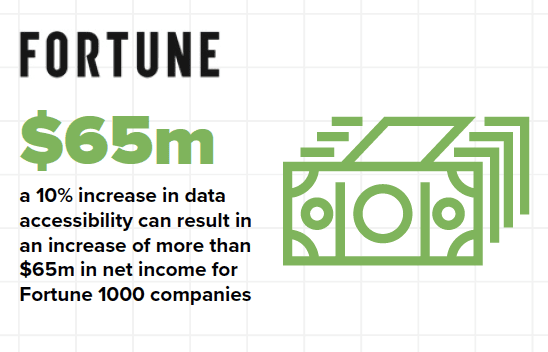HR will be the driving force behind digital transformation — but it won’t be easy.
HR will be the driving force behind digital transformation.
As such, HR professionals must ensure technology is employee-centric and captures the necessary data.
We lift the lid on why connectivity, HR technology, digital adoption, and data will be key in an organization's digital transformation journey.
HR technology is taking the center stage — but for digital transformation to work, and for HR leaders to reap the benefits, software needs to be frictionless so that employees use it and human resources unlock the power of data.
“With the best will in the world, HR was never designed for the level of chaos the pandemic has tipped us into,” says UNLEASH CEO Marc Coleman.
“The tech stack HR flew into the crisis with wasn’t up to the task. So, flying out of the crisis, HR leaders are moving to retool their organizations, and maximize effectiveness of their existing systems to manage and measure the full employee experience lifecycle: from hire to retire.”
Employees are feeling more empowered than ever before, and there’s no denying HR leaders are under pressure to deliver. But how?
UNLEASH’s latest ‘The Digital Adoption Drive: Achieving HR’s New Goals in a World of Hybrid Work’ report — sponsored by AppLearn — features practical advice to help HR leaders embed digital into their organizations.
As part of the research, UNLEASH spoke to 13 HR leaders working in a range of sectors to find out HR’s new priorities. Here’s what we learned.
HR leaders everywhere have spent the past year changing the way teams do things.
Now that the ship has steadied somewhat, attention is shifting towards employee experiences.
The HR leaders we spoke to touched on what employees want, and the tools required to meet their expectations.
Nissan’s vice president of global people services, Raju Vijay, described this to perfection when he said employees were after a “consumer-grade experience”.
The market is awash with hundreds of HR tech tools that promise to meet organizations’ requirements — but the HR leaders interviewed for the report highlighted a frustrating level of complexity, which is inevitably stalling a slicker rollout of potentially transformative technology.
The problems are exacerbated by tech stacks that “tremble like a Jenga tower”, with new applications being bolted onto legacy systems.
“If we learn not to expect the perfect product from day one, but engage with end-users early to build on their experience, we can avoid surprises when a solution is delivered,” says Fred Van Wees, director of global HRIS at ICL Group, in the report.
The succesful workplace of the future will rely on how effectively employees can use the tools they’re given. Vijay calls this Nissan’s “number one HR goal”.
So what are organizations doing to understand which systems and tools they need to provide? There is no blanket solution.
Our experts say they are continuing to experiment with employee polls and Net Promoter Score feedback as well as tinkering with survey frequency to get the best response. Other approaches include linking HR KPIs more closely to overall business goals.
An abundance of opportunity awaits HR leaders as they seek to understand and thrive in the future of work.
Harnessing cutting-edge HR software to transform operations, build efficiencies, and provide market-leading experiences to all employees is all dependant on data.
Yes, data is king — and the experts we spoke to agreed that better use of it was essential.
As we’ve seen, DAPs are a key source of this information — so it’s no wonder budget is expected to be poured into installing platforms and getting the best out of them.

There are many roadblocks ahead, but armed with the right information — and HR technology — human resources teams should be able to drive digital transformation that actually works for people and the business.
Get the Editor’s picks of the week delivered straight to your inbox!

Columnist
Former editor of UNLEASH, Yessi is a seasoned tech journalist and regular contributor to Times Radio in the UK.
"*" indicates required fields
"*" indicates required fields